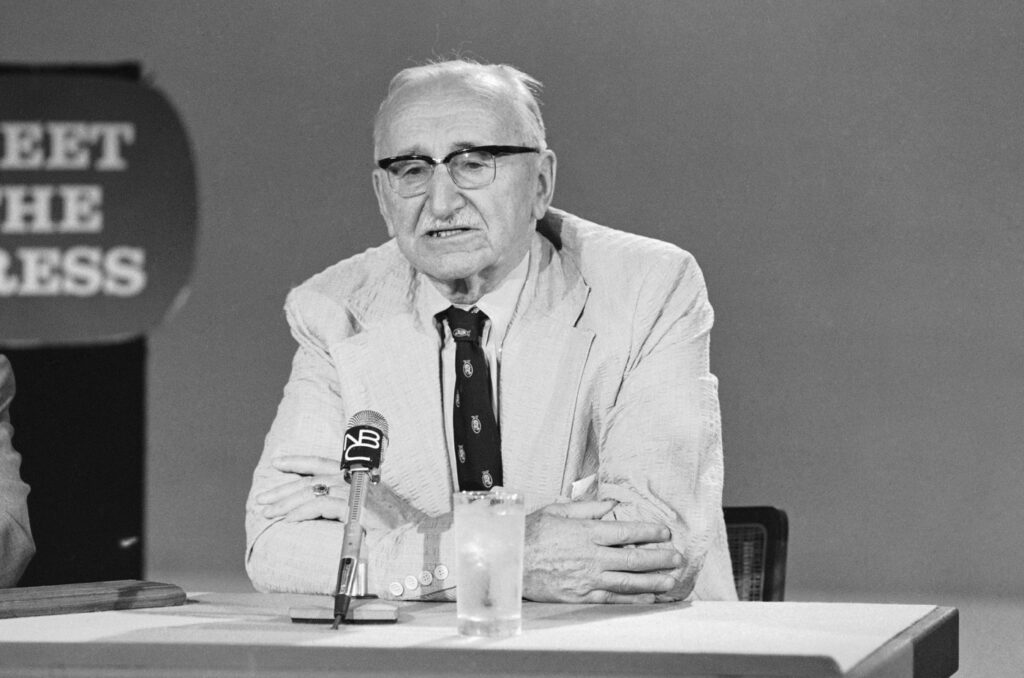
“‘Emergencies’ have always been the pretext on which the safeguards of individual liberty have been eroded — and once they are suspended it is not difficult for anyone who has assumed such emergency powers to see to it that the emergency will persist,” warned economist Friedrich Hayek in his three volume “Law, Legislation and Liberty” published in the 1970s.
Today marks the birth date of the influential free market economist, political philosopher and Nobel laureate. It’s as good a time as any to reflect on the wisdom of Hayek.
Friedrich August von Hayek was born on May 8, 1899 in Vienna. After a stint in the Austro- Hungarian Army during the First World War, Hayek chose to pursue an academic career, eventually making his way the faculty of the London School of Economics.
In 1944, his most popular book, “The Road to Serfdom,” was published. In it, Hayek cautioned against growing intellectual and political notions which disregarded liberty in favor of central planning of economic affairs. One of the core insights of Hayek offered is that the more “the state ‘plans,’ the more difficult planning becomes for the individual.”
Over the course of many decades, Hayek developed and defended his position that it’s a “fatal conceit” to believe that “man is able to shape the world around him according to his wishes.” Rather, he argued, the “extended order” of human cooperation “resulted not from human design or intention but spontaneously.”
As Hayek understood, knowledge is dispersed in a world too complicated for any central planner or committee to ever wrap their heads around.
The free market, he explained, is a means by which this dispersed knowledge can be pulled together in an ordered, but unplanned way. This unplanned but ordered system ultimately leads to greater wealth and knowledge than a socialistic system could possibly produce precisely because it leaves to free people the freedom to choose how they relate with each other, how they invest, howthey devote their efforts.
Hayek championed the power of the free market, individual liberty and generally opposed interventionism and viewed the role of government narrowly.
Laws and government decrees, he argued, should be general, equal and certain.
Compare that to the convoluted, often cronyist legal system we have today.
Though he supported the providing of some social safety net programs, he opposed the redistribution of wealth and policies rooted in “social justice,” which he described as a “mirage” and “a quasi-religious belief with no content whatsoever.”
Though Hayek passed away in 1992, his ideas are as relevant as ever.
If governments operated with Hayekian principles in mind, there would have been more checks-and-balances in the exercising of emergency powers throughout the coronavirus pandemic.
Related Articles
We must do more to help victims of crime: George Gascón and Cristine Soto DeBerry
Free speech and trivial lawsuits
Backlash to draft majority opinion on abortion could yield changes to final decision
The Supreme Court leak and the perpetual attacks on American institutions
A timeless pattern language to live in
Governments would also recognize that their endless interventions in the market system stifle the potential for innovative solutions to emerge.
Alas, the tendency to centralize decision-making and cede more power to fewer individuals has persisted.
It is a credit to the power of relatively free markets, capitalism and the limits on government that do exist that human prosperity has exploded over the last century despite this.
In a time when the governments at all levels are busy concocting new interventions, new market manipulations, new taxes and new roles for government in society, we hope that more Americans recognize, as Hayek did, that continuing down that path is the road to serfdom, not prosperity.
